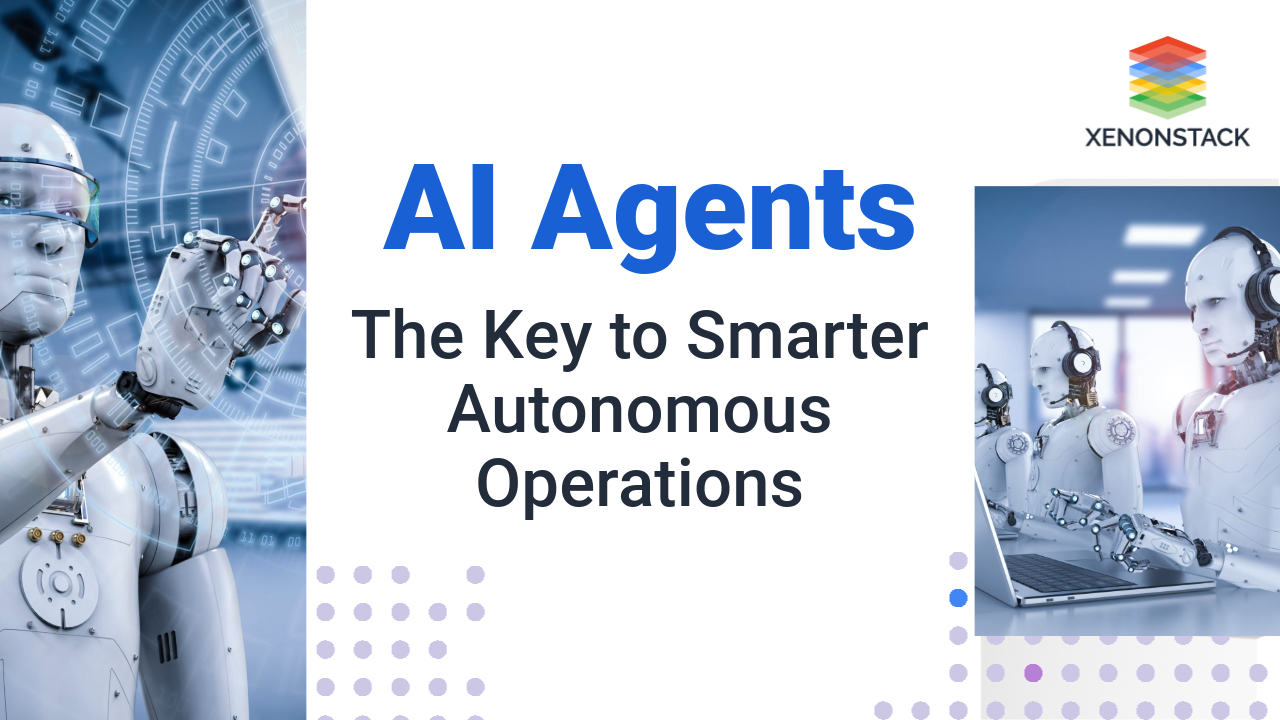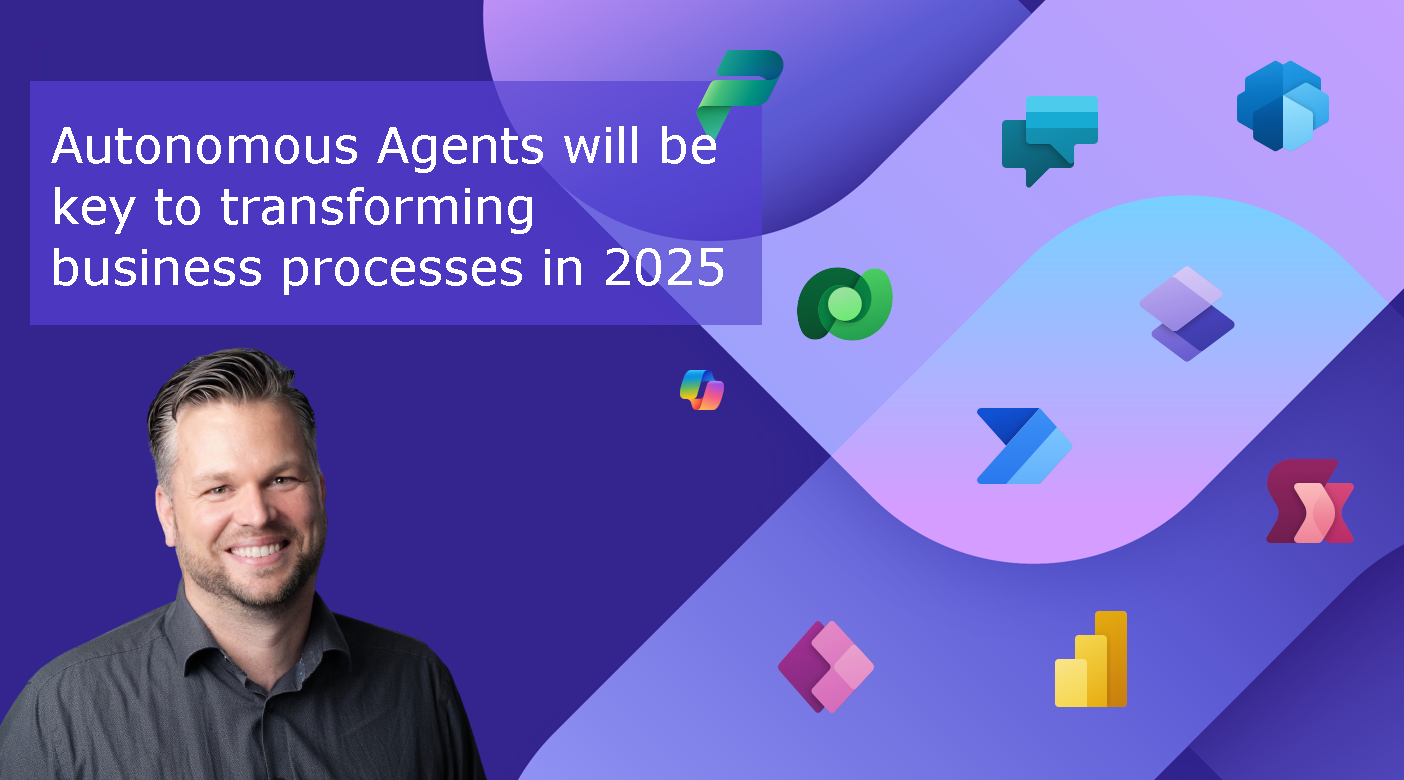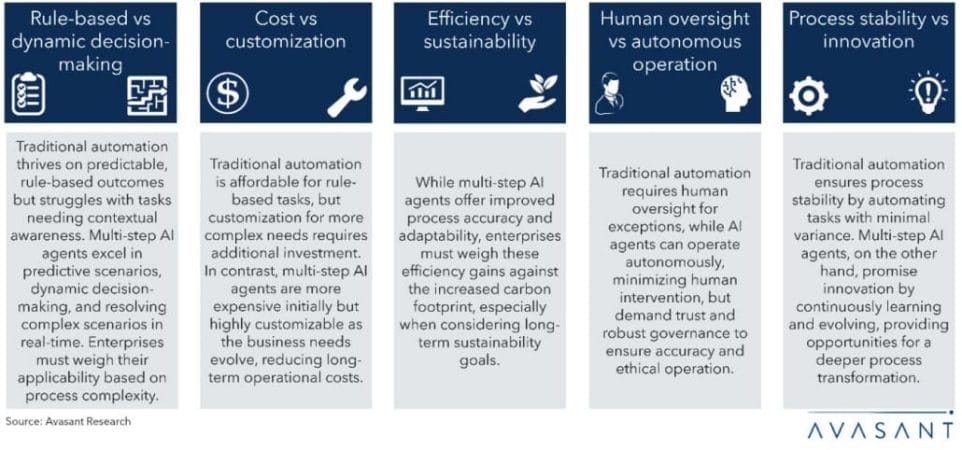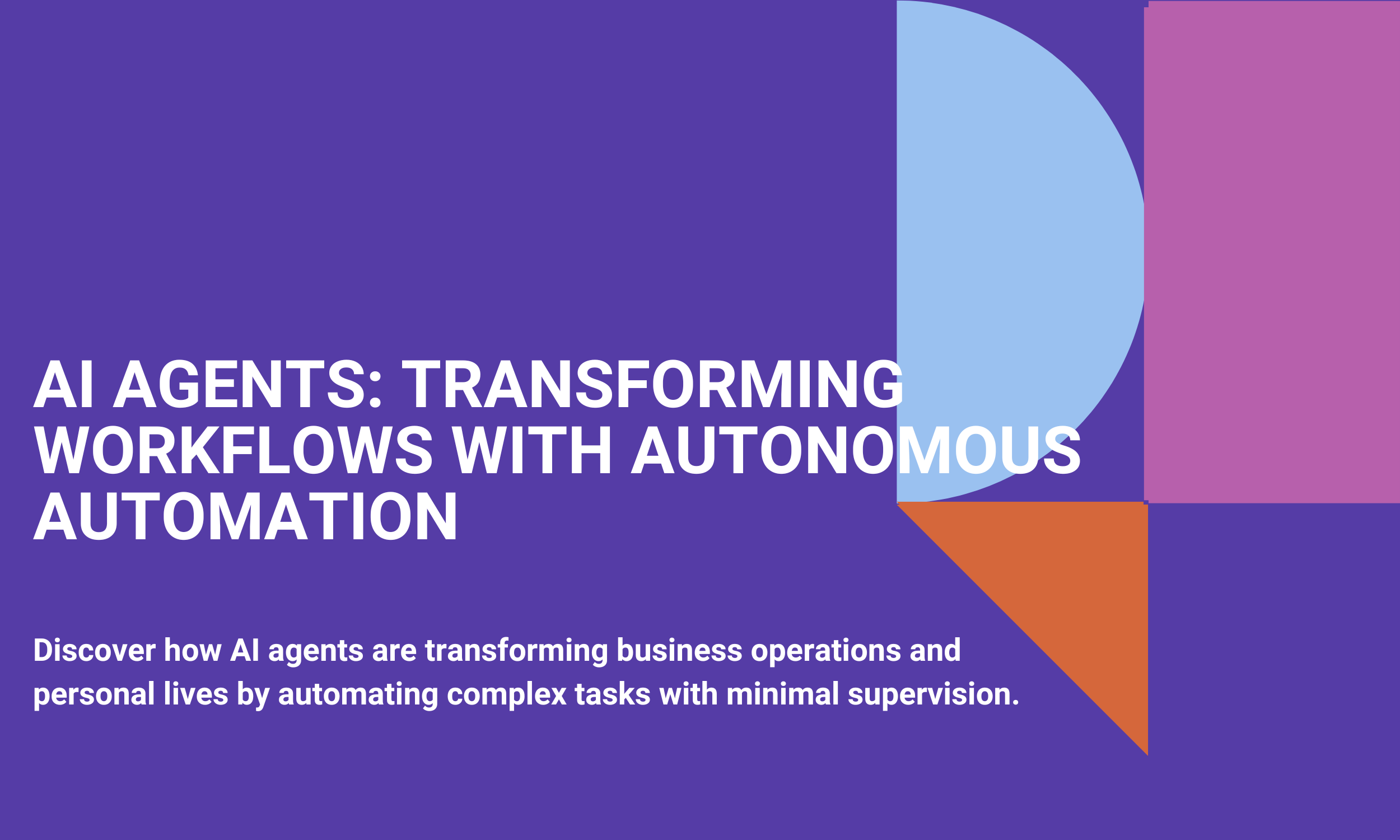Understanding Autonomous AI Agents in Business Operations
Definition and Core Features of Autonomous AI Agents
Autonomous AI agents are self-governing systems. They combine artificial intelligence, machine learning, and advanced decision-making algorithms. Unlike traditional automated systems, autonomous agents learn from experience. They make independent decisions and execute complex tasks without constant human oversight.

These agents perceive their environment, process information, and act accordingly. They adapt to new data and improve over time.
Key Capabilities that Distinguish Autonomous AI from Traditional AI
Autonomous AI agents possess unique capabilities that set them apart. They can handle complex tasks with minimal human intervention, unlike traditional AI. Self-learning is a key feature, allowing them to improve performance by analyzing data.
Independent decision-making enables them to operate without constant instructions. Adaptability allows them to adjust to unforeseen scenarios, making them ideal for dynamic environments. Scalability ensures they can operate across various domains without losing efficiency. They can also plan and execute multi-step tasks, unlike traditional chatbots that require constant user interaction.
The Rise of Autonomous AI Agents in Business Operations
Historical Context: Evolution of AI in Business
AI has come a long way in business. Initially, AI was used for basic automation and data analysis. Over time, it evolved to include machine learning and predictive analytics.
The journey began with rule-based systems. Now, AI can handle complex tasks and make decisions. This evolution has paved the way for autonomous AI agents.
Current Trends Fueling the Adoption of Autonomous AI
Several trends are driving the adoption of autonomous AI agents. The need for increased efficiency and productivity is a major factor. Businesses seek ways to streamline operations and reduce costs.

Advancements in AI technology, such as edge computing and collaborative AI, are also fueling adoption. The availability of vast amounts of data and improved processing power further contribute to this trend. The desire for real-time decision-making and personalized experiences is another key driver.
The Role of AI in Increasing Operational Efficiency and Productivity
AI plays a crucial role in boosting operational efficiency. Autonomous AI agents automate repetitive tasks, reducing errors and saving time. They optimize workflows and improve resource allocation.
By handling routine tasks, AI frees up human employees to focus on more strategic initiatives. This leads to increased productivity and better overall performance. AI's ability to analyze large datasets quickly also provides valuable insights for decision-making. To learn more about AI's impact on business efficiency, check out Boost Your Business Efficiency: How Generative AI Can Transform Your Processes.
Impact of Autonomous AI Agents on Business Productivity
How AI Agents Optimize Workflow and Task Management
Autonomous AI agents streamline operations by automating tasks and optimizing workflows. They can manage schedules, prioritize tasks, and allocate resources efficiently. This reduces bottlenecks and improves overall productivity.
These agents can also adapt to changing conditions in real-time. They ensure that operations run smoothly even in dynamic environments. By automating routine tasks, they allow human employees to focus on more complex and creative work.
Real-World Examples of Increased Efficiency
Case Study: Amazon's AI-Powered Logistics
Amazon leverages AI to enhance its logistics operations. AI-powered robots in fulfillment centers automate tasks like moving goods and sorting packages. Machine learning algorithms optimize warehouse layouts and robot paths for maximum efficiency.

This has resulted in faster order processing times and improved customer satisfaction. Amazon's use of AI demonstrates how autonomous agents can significantly boost efficiency and scalability. They also use AI for demand forecasting.
Case Study: Walmart's Supply Chain Optimization
Walmart uses AI to optimize its supply chain. AI algorithms forecast demand, manage inventory, and optimize delivery routes. This reduces waste, cuts costs, and improves product availability.
Walmart's AI-driven approach has enhanced its supply chain efficiency. It also aligns with its sustainability goals by reducing its carbon footprint. Autonomous AI agents are revolutionizing supply chain operations through real-time monitoring, demand forecasting, and automated logistics.
Challenges of Implementing Autonomous AI in Business
Integration Issues with Legacy Systems
Integrating autonomous AI with existing systems can be challenging. Many organizations rely on outdated infrastructure that lacks compatibility with new technologies. This requires significant effort and investment to upgrade systems.
A phased approach to integration can help ensure a smooth transition. However, it is still a complex task. Businesses must carefully plan and execute the integration process.
Workforce Adaptation and Skills Gap
The introduction of autonomous AI often raises concerns about job displacement. Employees need to be reskilled to work alongside AI systems. This requires training programs focused on AI collaboration.
There is a shortage of professionals skilled in AI and machine learning. Companies must invest in upskilling their workforce to bridge this gap.
Data Privacy and Ethical Considerations
Autonomous AI systems rely on vast amounts of data, raising privacy concerns. Ensuring data security and compliance with regulations like GDPR is crucial. Businesses must implement robust cybersecurity measures.

Ethical considerations, such as algorithmic bias, also need to be addressed. Organizations must establish clear guidelines for AI decision-making. Regular audits and transparent governance practices can help mitigate these issues.
Technical Limitations and Reliability Concerns
AI systems can face technical limitations, such as errors and malfunctions. Security issues, including the potential for automating cyberattacks, are also a concern. Ensuring the reliability of AI agents is essential.
Continuous monitoring and maintenance are necessary to address these issues. Businesses need to invest in robust AI infrastructure. They should also have contingency plans in place for system failures.
Future Trends in AI Agent Technology for Enterprises
The Shift Towards Collaborative AI
The future of AI in business is moving towards collaborative systems. AI agents will work alongside human teams, combining AI's analytical capabilities with human creativity. This will enhance productivity without replacing human input.
Microsoft's Copilot is an example of such a system. It uses autonomous agents to assist professionals in various tasks. Discover more about the future of AI in 10 Game-Changing Ways Agentic AI Will Revolutionize Industries by 2025.
Innovations in Edge Computing and Real-Time Decision Making
Edge computing enables AI agents to process data locally. This allows for real-time decision-making, which is crucial in industries like healthcare and autonomous vehicles. Real-time patient monitoring and diagnostics are made possible by AI leveraging edge computing.
This trend will continue to grow. It will drive further advancements in AI capabilities. Businesses will benefit from faster and more responsive AI systems.
The Growing Importance of Ethical AI and Governance
As AI becomes more prevalent, ethical frameworks and transparent governance are essential. Businesses must ensure that AI systems operate responsibly, particularly in sensitive areas like data privacy. Initiatives like the EU's AI Act are setting global standards for AI governance.
Companies need to design ethical and transparent AI systems. This will build trust and ensure long-term success. The focus on ethical AI will shape the future of AI development and deployment.
Case Studies of Successful AI Agent Integration in Operations
Overview of Notable Success Stories
Several companies have successfully integrated AI agents into their operations. These success stories highlight the benefits of AI in various industries. They provide valuable insights for businesses looking to adopt autonomous AI.
These examples demonstrate the transformative potential of AI. They also showcase best practices for implementation. They can inspire other organizations to embrace AI.
Case Study: Starbucks' Personalized Customer Experience
Starbucks uses AI to personalize the customer experience. AI-driven recommendations are tailored to individual preferences and purchase history. This has led to increased sales and customer satisfaction.

Predictive inventory management and optimized staffing have improved operational efficiency. Starbucks' use of AI sets a new standard for personalized service in the retail sector. AI analyzes customer interaction data to uncover trends.
Case Study: Deutsche Bahn's Enhanced Railway Operations
Deutsche Bahn uses AI to enhance its railway operations. Predictive models forecast delays and adjust schedules dynamically. AI-driven predictive maintenance tools identify and rectify potential issues.
This has improved punctuality and service reliability. AI algorithms also optimize routes and speed, reducing energy consumption. Deutsche Bahn's integration of AI demonstrates significant improvements in efficiency and safety.
Insights and Lessons Learned from Implementations
These case studies offer valuable lessons for businesses. Continuous improvement and adaptation are key to successful AI implementation. Collaboration between AI and human teams is essential.
Investing in employee training and development is also crucial. Businesses should focus on ethical considerations and data privacy. By learning from these examples, organizations can better navigate their AI journeys.
Conclusion
Summary of Key Insights
Autonomous AI agents are transforming business operations. They offer significant benefits in terms of efficiency, productivity, and decision-making. However, there are challenges to overcome.
Integration with legacy systems, workforce adaptation, data privacy, and technical limitations need to be addressed. Future trends like collaborative AI, edge computing, and ethical governance will shape the landscape of AI in business.
The Strategic Importance of Embracing Autonomous AI in Business
Embracing autonomous AI is strategically important for businesses. It enables them to remain competitive and innovative. AI-driven insights and automation can lead to better performance and customer satisfaction.
Companies that adopt AI early will be well-positioned for future success. They can drive growth and create new opportunities. The transformative potential of AI makes it a critical investment for any forward-thinking organization.
Key Takeaways:
- Autonomous AI agents enhance efficiency by automating tasks and optimizing workflows.
- Integration with legacy systems and workforce adaptation are major challenges in AI implementation.
- Real-world examples like Amazon and Walmart demonstrate significant improvements in logistics and supply chain management through AI.
- Future trends include collaborative AI, edge computing, and a strong emphasis on ethical AI governance.
- Embracing AI is strategically important for businesses to remain competitive and innovative.
